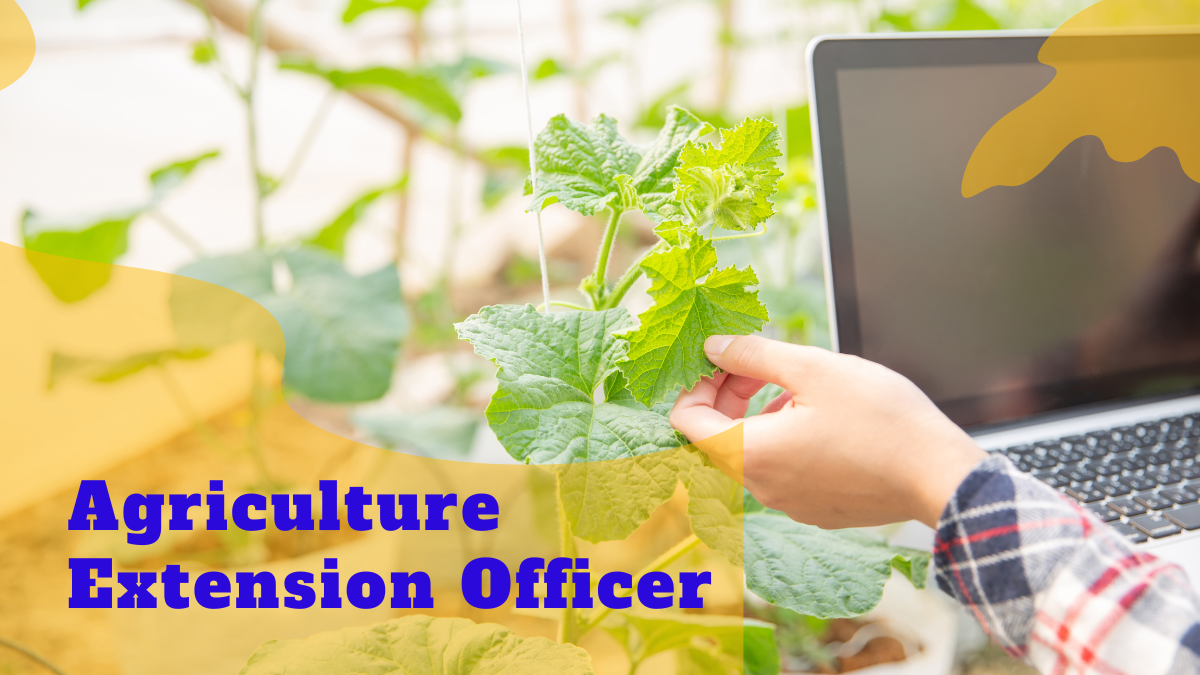An Agriculture Extension Officer is the vital bridge connecting farmers with the expansive agricultural research realm. They proffer indispensable insights, training modules, and resources, championing farming practices’ enhancement and sustainability’s promotion. Role of the Agriculture Extension Officer is to impart knowledge about cutting-edge technologies, optimal practices, and evolving policies, catalyzing growth and progression within agriculture.
Technical Mastery of Agriculture Extension Officer
Holistic Agricultural Acumen:
A profound grasp of multifaceted agricultural practices—encompassing crop rotation, soil management, pest mitigation, and irrigation strategies—is imperative. Such proficiency empowers officers to dispense precise and relevant counsel to farmers, amplifying productivity and sustainability.
Agritech Acquaintance:
Staying attuned to the latest strides in agricultural technologies is paramount. This encompasses keeping abreast of innovations like GPS-navigated tractors, crop-surveillance drones, and precision-centric farming methodologies.
Communication Craftof Agriculture Extension Officer
Articulate Oral Expression:
The capability to lucidly and succinctly convey information is crucial. Officers must excel at elucidating complex notions in easily digestible terms, modulating their discourse to resonate with varied audiences.
Skillful Scripting:
Exceptional writing prowess is indispensable for crafting compelling reports, training modules, and pedagogical resources. A well-articulated document can substantially sway the adoption of innovative farming techniques and technologies.
Problem-Resolution Proficiencies of Extension Officer
Analytical Aptitude:
Robust analytical acumen enables officers to diagnose agricultural impediments, discern root causes, and contrive pragmatic solutions by scrutinizing data and exploring diverse avenues.
Critical Cognition:
Critical thinking faculties are paramount for rigorously appraising information, spotting patterns, and anticipating hurdles. This proactive stance equips officers to proffer timely and efficacious assistance to farmers.
Data Scrutiny and Documentation of Agriculture Extension Officer
Data Harvesting Expertise:
Mastery in gathering and analyzing data is vital for appraising farming methods, tracking crop yields, ensuring food security, and gauging the efficacy of extension initiatives.
Reportage and Record-Keeping:
Efficient reportage and documentation competencies are essential for conveying discoveries, suggestions, and program outcomes to stakeholders lucidly and succinctly.
Organizational Proficiencies of Agriculture Extension Officer
Temporal Governance:
Adept time-management abilities are essential for juggling myriad tasks, projects, and obligations, ensuring punctual delivery and seamless execution of extension programs.
Resource Oversight:
Streamlined allocation and utilization of resources—spanning budget, personnel, and materials—are pivotal for the efficacious execution of extension initiatives.
Collaboration and Cohesion of Extension Officer
Interpersonal Ingenuity:
Robust interpersonal aptitudes are vital for nurturing affirmative relationships and fostering collaboration with farmers, researchers, and other stakeholders.
Collective Conundrum-Solving:
The prowess to collaboratively tackle intricate challenges within diverse teams and devise groundbreaking solutions is indispensable.
Flexibility and Versatility of Extension Officer
Adaptive Acumen:
Being amenable to technological, procedural, and policy shifts is crucial in the fluid agricultural landscape.
Challenge Resilience:
Prompt adaptability to unanticipated challenges and upheavals—like extreme climatic events or market fluxes—is pivotal for offering timely assistance and implementing responsive strategies.
Leadership Qualities of Agriculture Extension Officer
Inspiration Instinct:
Effective leadership aptitudes are indispensable for galvanizing and empowering farmers to adopt novel practices, technologies, and sustainable farming modalities.
Decisional Dexterity:
Robust decision-making prowess enables officers to make informed decisions, prioritize actions, and steer farmers toward their goals.
Project Oversight of Agriculture Extension Officer
Project Blueprinting and Execution:
Proficient project management abilities are vital for conceptualizing, coordinating, and actualizing various extension projects.
Progress Monitoring and Assessment:
Skills in tracking advancements, assessing outcomes, and gauging the impact of extension initiatives are essential for their efficacy and future strategizing.
Networking Proficiencies of Extension Officer
Relationship Forging and Fortification:
Potent networking capabilities are essential for accessing invaluable resources, disseminating knowledge, and collaborating on extension endeavors.
Stakeholder Involvement:
Efficient stakeholder engagement competencies are vital for enlisting stakeholders in the blueprinting, execution, and evaluation of extension programs.
Continuous Evolution of Agriculture Extension Officer
Professional Growth Commitment:
A dedication to perpetual learning and professional evolution is essential for staying abreast of cutting-edge trends, research, and best agriculture practices.
Innovation Incorporation:
Adopting innovative methodologies, technologies, and approaches is pivotal for remaining pertinent and adaptive to the evolving needs of farmers.
Conclusion
Attaining success as an Agriculture Extension Officer mandates a multifarious skill set, encompassing technical prowess, communication finesse, problem-solving aptitudes, and an unwavering commitment to continuous growth and professional evolution. By nurturing these pivotal skills and competencies, Agriculture Extension Officers can wield a transformative influence on farmers’ lives, communities, and the agricultural domain at large.
Whether you’re embarking on your agricultural extension odyssey or striving to ascend to loftier echelons, integrating these indispensable skills into your curriculum vitae can augment your prominence in the cutthroat job arena. Serving as an Agriculture Extension Officer transcends the realm of mere occupation; it embodies a vocation necessitating fervor, dedication, and an authentic aspiration to serve and empower farmers, facilitating their triumph and prosperity.
FAQs
What is a Field Extension Officer?
A Field Extension Officer, often referred to as an Agriculture Extension Officer, is a professional who works closely with farmers and rural communities to provide education, training, and support on agricultural practices, technologies, and resources. They serve as a bridge between agricultural research institutions, government agencies, and farmers, helping to disseminate knowledge, promote sustainable farming practices, and improve productivity and profitability in the agricultural sector.
What is the Meaning of an Extension Agent?
An Extension Agent, also known as an Agriculture Extension Officer or Field Extension Officer, is a professional who works to extend research-based agricultural knowledge and resources to farmers, rural communities, and the general public. They play a vital role in delivering educational programs, conducting workshops and training sessions, providing technical assistance, and facilitating communication and collaboration between farmers, researchers, government agencies, and other stakeholders.
What is an Extension Position?
An extension position refers to a professional role within the field of agricultural extension. Extension positions are typically filled by individuals such as Agriculture Extension Officers, Extension Agents, or Extension Workers who work directly with farmers and rural communities to provide education, training, and support on agricultural practices, technologies, and resources. These positions are often based in government agricultural departments, research institutions, non-governmental organizations (NGOs), or agricultural development projects and programs. Extension positions play a vital role in bridging the gap between agricultural research and practice, promoting sustainable farming practices, and enhancing agricultural productivity, profitability, and livelihoods in rural areas.



